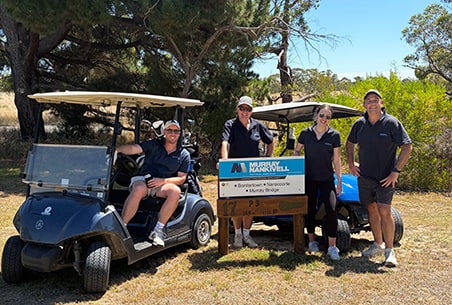



Navigating Self-Managed Super Funds and Death Benefit Nominations
Self-Managed Super Funds (SMSFs) have become a popular choice amongst Australians seeking greater control and flexibility over their retirement savings. The ability to manage investments, tailor strategies to suit personal circumstances, and potentially reduce fees appeals to many. However, with this autonomy comes a heightened level of responsibility—particularly when it comes to planning for what happens to your superannuation benefits after your death.
What Are Death Benefit Nominations?
A death benefit nomination is a formal direction made by a superannuation fund member, instructing the trustee how to distribute their superannuation entitlements upon their death. It is a critical estate planning tool that ensures your super benefits—potentially one of your largest assets—are distributed according to your wishes.
There are several types of death benefit nominations:
- Binding Death Benefit Nomination (BDBN): Legally compels the trustee to pay the death benefit as nominated, provided the nomination is valid and in force at the time of death
- Non-Binding Nomination: Guides the trustee, but they retain discretion over the distribution
- Reversionary Pension Nomination: A superannuation pension automatically continues to the nominated beneficiary upon the member’s death
Binding Death Benefit Nominations in SMSFs
Binding nominations in SMSFs are not as straightforward as they are for industry funds. Under the SIS Act, binding nominations must be made in accordance with the fund’s trust deed and the legislation. Key requirements generally include:
- The nomination must be in writing and signed by the member, in the presence of two witnesses who are not beneficiaries
- It must specify the allocation of benefits among eligible dependants or the member’s legal personal representative (estate)
- The nomination is generally valid for up to three years, unless the trust deed allows for non-lapsing nominations
SMSF trust deeds may allow for non-lapsing binding nominations—these last until revoked or replaced. It is crucial to review your fund’s deed, as not all SMSFs will automatically accommodate these.
Eligible Beneficiaries
For a nomination to be valid, beneficiaries must fall within the categories defined by superannuation law:
- Spouse or de facto partner
- Children of any age
- Anyone financially dependant on the member
- Anyone in an interdependency relationship with the member
- The member's legal personal representative (for distribution via their estate)
Nominating someone outside these categories will render the nomination invalid.
Reversionary Pension Nominations
For members receiving a pension from their SMSF, a reversionary pension nomination can provide certainty. Upon the member’s death, the pension automatically reverts to the nominated beneficiary (usually a spouse), without trustee discretion or the need for a death benefit payment process. This option can offer advantages such as:
- Continuity of income for the beneficiary
- Potential tax advantages, depending on the beneficiary's age and relationship to the deceased
- Reduction in the risk of disputes
However, it is important to check that your SMSF’s trust deed allows for such nominations and that the intended beneficiary remains eligible.
Taxation of Death Benefits
Death benefits paid from an SMSF may be subject to tax, depending on the recipient’s relationship to the deceased and the form in which the benefit is paid. Generally:
- Benefits paid to dependants (as defined by tax law) are tax-free
- Non-dependants may pay tax on the taxable component
- Benefits can be paid as a lump sum or pension, with different tax implications for each
Professional advice is strongly recommended to structure your nominations in a tax-effective manner.
Practical Steps for SMSF Trustees and Members
To ensure your wishes are honoured and your loved ones are protected, SMSF trustees and members should:
- Review the SMSF trust deed to confirm nomination options and requirements
- Make valid, up-to-date death benefit nominations in accordance with the deed and legal requirements
- Regularly review nominations, especially after significant life events
- Consider the use of revisionary pensions, where appropriate
- Seek specialist legal and financial advice - SMSF rules are complex and mistakes can be costly
Related Insights
Annual Farmers Day Ambrose
Annual Farmers Day Ambrose
Murray Nankivell proudly sponsored the 2026 Farmers Day Golf Tournament, with our team finishing 3rd of 58!
ATO Tax Agent Consolidation Update
ATO Tax Agent Consolidation Update
ATO consolidating our tax agent numbers by 1 March 2026. Check your ATO communication preferences to ensure your details stay correct.
Where country living meets expert accounting
Where country living meets expert accounting
And under skies like these, great people grow! Explore vacancies at Murray Nankivell, where rewarding careers and exceptional client outcomes go hand in hand.
We are here for you
We look forward to working with you to help you achieve a better financial future. Let us guide you on the path to financial success.
Contact your preferred Murray Nankivell office today.









